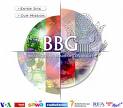In The Public Service
 Jobs are important. Life is difficult without them. People prepare diligently and carefully for jobs, mostly, though some just fall into them. All jobs confer status, some more than others. Media jobs, and others in the public eye, attract certain attention. Sometimes it’s the profile or proximity to bright lights. But media jobs are just that, jobs; hard to get, hard to keep.
Jobs are important. Life is difficult without them. People prepare diligently and carefully for jobs, mostly, though some just fall into them. All jobs confer status, some more than others. Media jobs, and others in the public eye, attract certain attention. Sometimes it’s the profile or proximity to bright lights. But media jobs are just that, jobs; hard to get, hard to keep.
Scratch the surface of any particular debate about public broadcasting and a rash quickly swells up. Private sector broadcasters itch to grab listeners and viewers who would so obviously stream to their channels. Publishers see a fountain of youth, all ready to subscribe. Politicians, splinter and otherwise, are tormented by that "independent" monster waving bad news, robbing them of entitled glory or, usually, shade. It is tempting, then, for public broadcasters to break out in hives.
Every turbulence places the media in the eye of the storm. Blame the media has become the common refrain, typically from those unable to see beyond their own spin. If only there was control, churn some. If only there was decency, plead others. The media has become the eye of the storm.
Public broadcasting executives fall into two distinct groups. Many are lifers, sealers of the mission, steeped in the culture, occasionally blinded by it. Others are the change agents, coming in from outside the organization with new ideas or, at least, less baggage. More often than not, politicians have a large voice in selections, vacillating between staying the course or changing it. With the nature of media as it is in the 21st century, change is the first choice.
An article of faith among adherents to democratic principles is the significance of an independent public broadcasting service. Even commercial competitors, broadcasting and otherwise, accept, however tepidly, that public broadcasters lift the media market creatively and economically. None of that matters to the recently risen illiberal dictators and oligarchs. The consequence has unleashed a return to State broadcasting, easier on the populist ears and eyes.
Public broadcasters working under constrained independence, administrative and financial, risk default to State broadcasting. Those separated barely a generation from dogmatic control face stiff resistance to new and open practice. Authorities always prefer a pliant mouthpiece.
Media regulation changes most when money is the object. Politicians are predisposed to crunch numbers in favor of short-term gain, elections being the most obvious. Broadcasters must consider transmitters, salaries as well as paper clips, air conditioning and pensions. Pulling a string makes the top spin fast enough to overcome inertia. Direction is something else.The advertising people know this.
Cultural insecurities are at the root of populist and nationalist political movements. For all the obvious reasons no nation is immune. The media sector, public media in particular, is often singled out for reflecting a more liberal, cosmopolitan society at odds with traditionalists, certainly those with a conspiracy theory or two. Learning from the past is necessary, living there foolish.
Television people are unusually sensitive these days. The crystal ball shows Netflix, Amazon and HBO attracting viewers as they commission impressive new shows. Broadcasters are being gobbled up by telecoms, cable operators and others seeking the immediate gratification of shareholder value. Unable to keep their hands above the table are the politicians, typically a decade or two behind and narrowly focused on the spoils. It’s time to give that ball a shake.
 From the earliest days of broadcasting listeners - and later viewers - in many countries contributed to transmitter and program costs through a tax levy on receiving equipment. Over time public broadcasting emerged in Europe and elsewhere from state operated systems. The household license fee formed, in part, the financial basis for independence from political and commercial influence. Several public broadcasters were able to leverage brand strength from this independence. Neither politicians nor competitors have been pleased.
From the earliest days of broadcasting listeners - and later viewers - in many countries contributed to transmitter and program costs through a tax levy on receiving equipment. Over time public broadcasting emerged in Europe and elsewhere from state operated systems. The household license fee formed, in part, the financial basis for independence from political and commercial influence. Several public broadcasters were able to leverage brand strength from this independence. Neither politicians nor competitors have been pleased.
The biggest executive challenge in handling a crisis is knowing what is and isn’t a crisis. It’s a qualifying attribute, requiring a certain distance from the moment or, at least, good noise-abatement technique. The best executives love, worts and all, their people, programs and jobs. The rest are simply accountants.
With their own music and styles young people have long had media’s complete and absolute attention. Advertisers have loved “youth culture” since the 1960’s when it became a marketing target, separate and distinct from the adult world and ready to spend to prove it. Best equipped to reach out to this new audience, for a variety of reasons, have been the radio broadcasters.
Forming a new public broadcasting system from old State institutions is never as simple as passing a law and changing the letterhead. All European public broadcasters have, in their own way, made that transition. But time entrenches all institutions and change is never easy.
The most successful business models rise from inspiration. History teaches well and boundaries are essential for creative solutions. Stealing ideas works, too. It’s all fair game and public broadcasters need not be shrinking violets.
Stability was once the hallmark of public broadcasting. Day after day, year after year, little changed and very solid brands were formed. New management practice has arrived, not simply cutting budgets and staff but shuffling the organizational plan. Tension, so goes the theory, is superior to complacency. Or maybe horizontal motion is confused with progress.
Control over information is an illusion if not folly. Those who view media through the prism of the pre-digital era are always frustrated, often angry. The best media has always been a little anarchy with great production techniques. Some people just don’t get it.
 Sour economics of the last decade, digital transitions and political shifting have put the media sphere on the back foot. Uncertainty and insecurity are, in many places, part of the landscape. Change for the better seems illusive as strategic investment is just postponed, short-term benefit all that matters. Meanwhile the carousel keeps spinning.
Sour economics of the last decade, digital transitions and political shifting have put the media sphere on the back foot. Uncertainty and insecurity are, in many places, part of the landscape. Change for the better seems illusive as strategic investment is just postponed, short-term benefit all that matters. Meanwhile the carousel keeps spinning.
Listeners, viewers and – now – surfers generally give public broadcasters high marks for value. While the standard funding mechanism – the license fee – is less than ideal alternatives are hard to find. But how public broadcasting is funded is inextricably tied to purpose. Competitors and the politicians who love them want to shrink public broadcasting and everything it does. And they’re coming for the money.
Politicians love television, except when they hate it. Public television holds an important spot in that love-hate relationship. Politicians tend to expect a certain degree of obedience from publicly funded broadcasting. Dutifully compliant public broadcasters rarely suffer the indignity of policy review. Those setting a more independent course battle constantly over executive appointments and money.
Strategies in the digital age are complex. Audiences always want more, not less. And they always want something new, different and, for Generation Selfie, just for them. Austerity economics often provides the itch for change but taking the long view is powerful.
Public broadcasting institutions are either beloved or begrudged. They do too much or too little. They’re either big bullies or ineffectual dwarfs. Outsiders just can’t decide. And that always primes the political vacuum pump.
Austerity economics and the political games related are tied to the health and well-being of public broadcasting. Politicians prefer their media compliant and will challenge all who complain. Still, public broadcasters know their strength, which confounds those forming the circular firing squad.
Corporate culture is a curious notion, often at odds with corporate structure. Public sector corporate culture can be either stimulating or fear inducing depending on leadership. Mission and its relevance to the public at large can be easily dislodged by indecision as much as bad ones. A positive corporate culture can embrace the ambiguity common to today’s media world but it cannot forge a path without strength of conviction.
The media world is delightfully complex. There are broadcasters, public and private. There are publishers, shrill and thoughtful. There’s the web, dynamic and rude. All the parts somehow work together, willingly or not, until the bond is broken.
When public money is spent, the details reveal more than just costs. Public broadcasters quiver when asked to defend expenses as accounting alone says little about public service obligations, at times a bit transcendent. Value for money is, they say, a vastly simplistic concept. But politicians like to keep things simple.
 News broadcasters and publishers always prepare carefully for the passage of significant national and world leaders. Archive material is catalogued, stories written, analysts scheduled. Proper recognition and tribute can be delivered when the time arrives. Such is the world of news. Planning only goes so far.
News broadcasters and publishers always prepare carefully for the passage of significant national and world leaders. Archive material is catalogued, stories written, analysts scheduled. Proper recognition and tribute can be delivered when the time arrives. Such is the world of news. Planning only goes so far.
Public broadcasting chiefs are generally appointed because of radio and TV skills or political talent. Sometimes insiders are preferred and sometimes outsiders, depending on the last scandal. A journalistic background can also be helpful, or not. The most common characteristic is an ability to keep everybody happy.
Management theory holds that senior executives enunciate mission and vision to inspire those in lower ranks. If all goes well, the job gets done and the product or service is successfully delivered to the delighted customer. As organizations grow large, particularly in the public sector, top management can devolve into institutional self-preservation above all else and it can be blinding.
Public broadcasting reform isn’t simple. There seems to be universal agreement, more or less, that the radio and television funded by and for the public is in need of a rethink, digital transition casting a new wave and economics another. Ideas are proposed, debated, changed and discarded. Nothing is easy but a good housecleaning helps.
The enduring contradiction in public broadcasting policy is demand versus cost. Various constituents expect high quality programming, everywhere, all the time and lots of it. None of that comes cheap. Finding a balance can be a terrible job.
More often than not, new public broadcasting bosses are welcomed to a barrage of criticism. It’s a rite of passage, of sorts. There’s always a complaint, a better idea and sometimes a scandal. Everything is on the table, especially the money.
Public broadcasters have become easy targets in recent years for doing too little, doing too much or doing it wrong. Keeping the “public service” flame comes from size, polish and independence from the political gruel. Public broadcasters have endured the periodic raging of critics because public trust remains high. Once that is compromised competitors and angry politicians have the last word.
Media organizations with a large social imprint are regularly placed on an ethical pedestal, always unattainable in real world terms, then set upon by feral beasts to gnaw and chew until the blood flows. Executives know this or learn it the hard way. The result turns a frighteningly large media organization into a large frightened one.
 The biggest challenge for public broadcasters, say some, isn’t funding. Even the richest public broadcasters feel the heat, from commercial broadcasters, new media, publishers and, of course, the politicians. It’s existential. And the long debate sometimes runs out of time.
The biggest challenge for public broadcasters, say some, isn’t funding. Even the richest public broadcasters feel the heat, from commercial broadcasters, new media, publishers and, of course, the politicians. It’s existential. And the long debate sometimes runs out of time.
In the best of times, public broadcasters hold broad support from listeners and viewers as well as politicians. For a generation the former State agencies enjoyed stable, often substantial funding and a measure of independence. Dismal economics feeding political turmoil is turning back the clock.
This age of austerity is, if anything, a call for modesty at public broadcasters. Commercial broadcasters want less competition while the digital dividend promises more. And politicians of a every stripe have their wants and needs. The viewers, of course, just want good television.
Public broadcasters have enjoyed a certain enviable status within the media sphere. Financing reasonably assured, free from the rowdy marketplace and bolstered by national identity many have become iconic brands able to innovate on many levels. But times, like economics, have changed and public broadcasters are asked to explain, exactly, what it is they do.
As audience shares drop, public broadcasters continue to look for solutions. With flat or contracting revenue streams and politicians wary of details, new ideas look like old ideas. The digital dividend strikes again.
Media rights advocates facing intransigent autocrats are, as all know well, between a rock and a hard place. Press releases and statements don’t faze the worst of the worst. And triangulating responsibility is a poor substitute for hard diplomacy.
 Haggling over what is and should be public service broadcasting has only been exacerbated by, in no particular order, the digital dividend and austerity economics. Add to that increasingly irritated private sector media operators thinking about competition and not just a few governments with an authoritarian bent thinking about self-preservation. With that in mind, the Council of Europe Committee of Ministers formally adopted a declaration with recommendations supporting public service media.
Haggling over what is and should be public service broadcasting has only been exacerbated by, in no particular order, the digital dividend and austerity economics. Add to that increasingly irritated private sector media operators thinking about competition and not just a few governments with an authoritarian bent thinking about self-preservation. With that in mind, the Council of Europe Committee of Ministers formally adopted a declaration with recommendations supporting public service media.
Public broadcasters are singing the blues. Running ahead of private sector competitors blinded many to extravagance, or the appearance thereof. While few were truly fat with cash the guaranteed revenue streams hid a multitude of sins, real or perceived, and those became targets of publishers, politicians and other predators. The result is a new tune of slow, dark notes that leaves the audience hanging.
Corporation boards, however they are constituted, always have a succession plan. Nobody wants confusion about when the CEO leaves the stage, so to speak. Public broadcasters are generally quite orderly about tenures and terms, except when they’re not.
Public broadcast financing remains contentious as services change with the digital universe and budgets under pressure. A license fee based on receiving equipment seems outmoded as listeners and viewers opt for internet and mobile applications. All financing options and combinations thereof are under the microscope. Just don’t call it a tax.
Scandals at media organizations have a way of lingering on and on. Revelations trigger investigations, which lead to recriminations, a resignation or two, then more investigations and revelations. Getting to the bottom of it all can be illuminating.
Public broadcasters have remained highly competitive across the broad landscape. A certain advantage is a development and strategy view longer than the next quarter, executives and budgets reasonably stable. It’s normal. But sometimes a different normal is invented.
Slice by slice, media consumption is a battlefield. Advantage goes the strongest, most savvy and fleetest afoot. How that’s applied makes a difference but, sometimes, a new trick or two changes the landscape.
Recent years have been challenging for public broadcasters. Once the picture of stability within the media landscape, public radio and television organizations are in a state of constant turmoil. And managing them just isn’t as much fun any more.
 Calls to cut public broadcasting services are not new. Private sector broadcasters have fought for limits to public broadcasters expansion, winning battles but not necessarily the war. More recently – in this age of austerity – politicians have joined in. Unintended consequences, though, have a way of rising.
Calls to cut public broadcasting services are not new. Private sector broadcasters have fought for limits to public broadcasters expansion, winning battles but not necessarily the war. More recently – in this age of austerity – politicians have joined in. Unintended consequences, though, have a way of rising.
Hosting a major televised entertainment event is an opportunity beyond compare for nations big and small. That international spotlight brings lots of attention. It can be “a golden opportunity.”
Public broadcasters have long drawn fire from private commercial competitors for audiences they attract and the money they spend doing it. The biggest public broadcasters have managed to fend off serious attacks on their financing and mission claiming the high-ground of public service, staying well above the hoi polloi of commercial media. Critics claim it’s just not right.
Powerful people play tough because they know that’s the way the game is played. Mixing politics and media with ego and hubris can create a high-tech war zone. This story is about the tricks, trials and collateral damage.
What adds measurably to the media landscape is a diversity of voices. Sometimes that’s accomplished by policies opening access to the media space. Sometimes it’s accomplished by balancing public and private media. All the time it’s to “enrich man’s spirit.”
One lesson from new media is the benefit of cooperation. Technologies being what they are, competing for devices never works. Audiences move quickly through each new phase. Broadcasters and publishers are learning about the power of cooperation and the costs.
As governments swing from right to left and back again, rules governing media are targets of opportunity. Every politician, it seems, has an opinion on media, public and private, old and new. Voters, though, are hard to impress.
No single part of the media sector has escaped the upheavals this decade has brought. Digital media and broadband uptake left broadcasters and publishers bemused as consumers – and advertisers - leapt for iPods, smartphones and Facebook. Add a financial crisis to general uncertainty and some media operators, particularly public broadcasters, are banging the pots for cash.
 The Web giveth and the Web taketh away. It is mighty and it is bold. Cue the lightening bolt! But whose Web is it? Cue the thunder.
The Web giveth and the Web taketh away. It is mighty and it is bold. Cue the lightening bolt! But whose Web is it? Cue the thunder.
Long gone are the easy days for public broadcasting. Politicians have searched for convenient solutions; to governance, finance, competition. At every corner, there’s a surprise. Change is hard to manage.
Public broadcasters generally eschew opportunities to eviscerate adversaries, those from the commercial media sector in particular, those owning newspapers in specific. It’s unkind, déclassé, even impolitic. In the UK, the knives have come out.
You are the public broadcaster and your pension fund that had a £470 million ($708 million; €580 million) deficit two years ago is now running a deficit close to £2 billion ($3 billion; €2.5 billion). What to do? The British Broadcasting Corporation (BBC) answered that one Wednesday – you change the rules so every single employee is going to end up with much less at retirement age than they had previously thought.
Oh, the radio and television license fee has suffered. Unless you live where it’s collected by stealth or not collected at all, the fee supporting your public broadcaster is compulsory. The radio and TV sheriff comes sniffing around your door.
Recent months have seen a spate of new public broadcasting bosses. Some have big, new, bold ideas. Some are just trying to keep their heads above water.
The Eurovision Song Contest may be a bit cheesy but it ain’t cheap. For public broadcasters hosting the ESC is an opportunity to step into an international spotlight and show what they can do with a high profile musical event. For those facing budget pressures, the ESC is a challenge, and increasingly so.
We are now accustomed to great cheering when a media company posts smaller than expected losses. Stock, however that’s viewed, generally rises. Mix in a contentious new media law and there’s no good news.
Nothing says you’re connected like having an iPhone app. Without one you are consigned to the media backwater, ignored if not forgotten and certainly uncool. Whether or not public broadcasters offer iPhone apps is now controversial.
Bankrupt public broadcaster spent millions on perks, bonuses and other fun as government cut revenue sources. Auditors looked down the rabbit hole and found too many consultants and outside lawyers. Meanwhile, there’s a new boss to be chosen.
Spanish politicians quickly agreed on a new head of public broadcaster RTVE. The last General Director left quickly. Perhaps the new person won't move so fast.
 The fall of the Iron Curtain was a drama acted on many stages. One by one, countries in Central and Eastern Europe reset political scripts all of which were given new airing on radio and television and in newspapers. There were dreams.
The fall of the Iron Curtain was a drama acted on many stages. One by one, countries in Central and Eastern Europe reset political scripts all of which were given new airing on radio and television and in newspapers. There were dreams.
There’s an election coming, always a clue to politicians’ interest in television. What better reason to fire the head of the public broadcaster, again. But what if he won’t leave the building?
Governments expect public broadcasters to do everything possible, and then some. When the money flows, everybody grows. When it slows, it’s time to go.
Digital television is fast arriving, bringing more channels and more competition. TV on the Web is fast approaching, bringing even more channels and even more competition. With that stress and more, Eurovision TV director Bjorn Erichsen says, “Television is OK.”
Children’s television attracts the attention of everybody, it seems, except those young people. Advocates would allocate more public money, alleviating shrinking advertising revenues. Major broadcasters and program producers fight over schedules. The whole of children’s media only survives with clear direction.
 British aid agencies decided to mount a campaign to support Palestinians in the wake of Israel’s recent military action. It’s normal to take this kind of appeal to broadcasters who, in turn, would take it to the general public. The BBC will not, as last report, participate.
British aid agencies decided to mount a campaign to support Palestinians in the wake of Israel’s recent military action. It’s normal to take this kind of appeal to broadcasters who, in turn, would take it to the general public. The BBC will not, as last report, participate.
Yet another government agency has killed hundreds of trees publishing a plan for public service broadcasting. What’s missing – again – is a robust meaning for public service. To protect public broadcasting it is not longer viable to leave this at ‘we’ll know it when we see it.’
With new competitors popping up, ad revenues in peril and license fee revenues sagging public broadcasters agonize. Politicians either line up to take charge or run for cover. It’s a war out there.
Caught between rising costs and falling ad revenues, broadcasters are cutting wherever they can. With this financial trap exacerbated by the wave of far broader economic woes, cutting services is next. If that isn’t enough to quell the mounting red ink, selling assets is all that’s left.
 Broadcast managers have a love-hate relationship with talent – love the ratings, hate the management. Buying high priced talent, for ineffective managers, means not managing at all. When damage occurs, somebody has to pay.
Broadcast managers have a love-hate relationship with talent – love the ratings, hate the management. Buying high priced talent, for ineffective managers, means not managing at all. When damage occurs, somebody has to pay.
Times are tough. It’s tough out there for banks, insurance companies, airlines and media. So when the going gets tough – as we’ve seen in the last week – the tough call on governments to fix it.
Like pixels filling the screen from a slow internet connection, French President Nicolas Sarkozy’s picture for public broadcasting is either a tantalizing glimpse of the future-possible or too frustrating to watch.
Nobody’s happy. Radio MultiKulti, produced since 1994 by Berlin public broadcasters, will close at the end of the year. So it is when the budget meets the spreadsheet.
 A nice tune performed by a Russian singer, written and produced by Americans, swept the Eurovision Song Contest voting. Commentators from countries that got few votes pulled no punches, calling the most watched single pan-European live television event doomed. The Contest’s eastward trajectory cannot be denied, nor can the phenomenon of the people’s vote.
A nice tune performed by a Russian singer, written and produced by Americans, swept the Eurovision Song Contest voting. Commentators from countries that got few votes pulled no punches, calling the most watched single pan-European live television event doomed. The Contest’s eastward trajectory cannot be denied, nor can the phenomenon of the people’s vote.
 It’s been nearly a year since French president Nicholas Sarkozy unveiled his plan to consolidate and reorganize French international broadcasting. One public company would be created – France Monde – under which Radio France Internationale, France 24 and TV5 Monde would merge. The unions objected. The partners objected. Owners of the name objected.
It’s been nearly a year since French president Nicholas Sarkozy unveiled his plan to consolidate and reorganize French international broadcasting. One public company would be created – France Monde – under which Radio France Internationale, France 24 and TV5 Monde would merge. The unions objected. The partners objected. Owners of the name objected.
 A proposal to fund public broadcasting in France with a tax on internet and mobile phone services met another round of criticism from EC Info Society and Media Commissioner Viviane Reding.
A proposal to fund public broadcasting in France with a tax on internet and mobile phone services met another round of criticism from EC Info Society and Media Commissioner Viviane Reding.
Violent demonstrations in Serbia raised tensions among Eurovision Song Contest organizers. Eurovision and the EBU downplayed suggestions of moving the venue from Belgrade.
 Anytime a national leader suggests changes in any institution some people get very nervous. So it was earlier in the week as new French President Nicolas Sarkozy commented on French broadcasting. Share prices for commercial TV channels and advertising companies rose as public broadcasters eyed the window ledges.
Anytime a national leader suggests changes in any institution some people get very nervous. So it was earlier in the week as new French President Nicolas Sarkozy commented on French broadcasting. Share prices for commercial TV channels and advertising companies rose as public broadcasters eyed the window ledges.
The great lesson from the recent Russian Parliamentary election campaign is very simple: expect the expected. Russian media was, at best, compliant and, at worst, complicit. But who would expect Russian influence on media to drive into the European Union?

The difference between public and private sector broadcasting can be reduced to one thought, according to the ‘publics.’ The ‘privates’ need programs to make money, they say, and the ‘publics’ need money to make programs. ‘Content’ has replaced the very last century concept of ‘program’ and hustling money has changed, too.
The BBC showed on Monday the first part of its documentary series about the British monarchy at work and the message that flowed was how utterly stupid that whole hype mess for the series was that brought down the BBC 1 Controller and a senior executive at the production company.
TV5 Monde partners have checked French government efforts to consolidate its international broadcasting. Swiss, Belgians and Canadians want the French-language television channel to remain a partnership and not become ‘the voice of France.’
 Campaigns by public television to encourage election voting characterize civic responsibility. Democratic participation in elections is a good thing. Encouraging that participation is also a good thing.
Campaigns by public television to encourage election voting characterize civic responsibility. Democratic participation in elections is a good thing. Encouraging that participation is also a good thing.
The controller of the BBC’s primary terrestrial channel, BBC1, has resigned as heads begin to roll over Buckingham Palace’s fury at the public broadcaster showing the media a trailer for a documentary that edited video out of context and embarrassed the Queen.
The next Eurovision Song Contest will be different. Details are sketchy but two semi-finals will determine the finalists and maybe a wild-card
 Before Johnny Carson became a household US TV name on “The Tonight Show” he hosted a daily half-hour quiz show titled “Who Do You Trust?” If That show was alive today and asked that question of the British public their overwhelming answer would be, according to a new survey, that they know who they don’t trust – British TV.
Before Johnny Carson became a household US TV name on “The Tonight Show” he hosted a daily half-hour quiz show titled “Who Do You Trust?” If That show was alive today and asked that question of the British public their overwhelming answer would be, according to a new survey, that they know who they don’t trust – British TV.

Moscow station Bolshoye Radio informed the BBC (Friday August 17) and stopped broadcasting BBC Russian immediately. For the BBC, its last FM re-broadcaster in Russia is gone. For international broadcasters it is another footnote to a changing world.
Public broadcasting jobs in Germany are not jobs for life any more. Too old and you’re out at youth channel Radio Fritz.

The agonized whinging from BBC critics, honorably not other broadcasters, bemoan the lost days when broadcasters produced everything they aired. That system ended sometime in the last century. That day came when one general director after another asked that very important – and so very ‘80’s – question: What business are we in?
The independent program maker RDF Media has learned the hard way it is not good business to portray the Queen in a manner that’s not true, and embarrass the public broadcaster at the same time.
South Africa’s State broadcaster became the most recent addition to the bouquet of viewpoints offered to television viewers with the debut of SABC International. The satellite channel will counter the “half truths” told by “news agencies with headquarters in powerful nations,” beamed President Thabo Mbeki in a launch speech all too familiar.

When a company’s board issues a public statement saying “significant failures of control and compliance” have compromised “values of accuracy and honesty” and that company is the world’s most prestigious public broadcaster, the BBC, then one has to ask how long it will take for some top jobs to go?
It was a historical day – the UK’s prime minister was making his last appearance in Parliament before going off to see the Queen to resign. An event that one might think a public broadcaster would cover in its entirety? Not so the BBC for its terrestrial viewers.

James K. Glassman has become Chairman of the Broadcasting Board of Governors, the agency supervising US government international broadcasting. Answering questions via email this weekend, he offered a candid and optimistic appraisal of the agency and its mission.
followup (1) comment (0)

Russia’s new international TV channel Russia Today has discovered Web 2.0. Faced with a distribution challenge, YouTube provides a solution.
Pope Benedict XVI on several occasions this year has criticized the media, particularly television, for programming particularly aimed at children that goes against their moral social good. But the Church had another TV issue to deal with this week as RAI, the Italian public broadcaster, planned to show a BBC documentary critical of the then Cardinal Ratzinger for enforcing church secrecy rules on its many child sexual abuse cases around the world.
An Iranian sponsored international radio conference and a US Congressional committee hearing, all in one week, heaped praise and criticism on broadcasters.
followup (1) comment (0)
Romanian public television is losing money and the Parliament is unhappy. The broadcasters’ president walked (or ran) out a week ago. He was unhappy. Another public broadcaster in the new Member States faces a crisis.
NPRs reach extending south
Firing yet another public television president sets no precedent in either Poland or the new Member States. Polish President Lech Kaczynski ordered TVP President Bronislaw Wildstein out at the end of February moving ever more quickly to bring the broadcaster under State control. Wildstein’s successor, former Kaczynski aide Andrzej Urbanski, was nominated and appointed within a week.
 The world finds its bearings each day from broadcast news. Through radio and television sounds and images, facts and reality are sorted and chosen by billions. Though times are changing broadcast news will continue to inform and educate like no other medium for generations to come. News brands have expanded to meet increasing demand; CNN has global television reach, Al Jazeera is a new force and the BBC lofts above them all.
The world finds its bearings each day from broadcast news. Through radio and television sounds and images, facts and reality are sorted and chosen by billions. Though times are changing broadcast news will continue to inform and educate like no other medium for generations to come. News brands have expanded to meet increasing demand; CNN has global television reach, Al Jazeera is a new force and the BBC lofts above them all.
Bribes, favors and turning a blind eye swallow the Bulgarian and Romanian political and business cultures. Concerns by European Commissioners turned to warnings, threatening to delay or postpone both countries accession to the European Union. The State broadcasting institutions were far from exempt.

With Hungarian public television clinging to life by a thread, public broadcasting support groups hold an “extraordinary” séance.
The always diplomatic Arne Wessberg – outgoing president of the always diplomatic European Broadcasting Union – left the stage with a sharply un-diplomatic blast at Hungarian Prime Minister Ferenc Gyurcsany and public television channel MTV.
 PSB youth channels typically follow one of two formats — the more program-driven “educational/alternative” option and the standard-fare contemporary hit radio (CHR), which competes more openly with commercial stations. A “third way” is developing; pleasing to pleasing to public broadcasters, upsetting their private competitors.
PSB youth channels typically follow one of two formats — the more program-driven “educational/alternative” option and the standard-fare contemporary hit radio (CHR), which competes more openly with commercial stations. A “third way” is developing; pleasing to pleasing to public broadcasters, upsetting their private competitors.
 The European Broadcasting Union (EBU) reacted swiftly and harshly to a suggestion that the 2007 Eurovision Song Contest just might be a great promotional device for the European Unions’ 50th anniversary.
The European Broadcasting Union (EBU) reacted swiftly and harshly to a suggestion that the 2007 Eurovision Song Contest just might be a great promotional device for the European Unions’ 50th anniversary.
Environmentally friendly Switzerland tries “World Radio Switzerland” for the 2nd or 3rd time.

Hardly more than a month since a Finnish hard rock band called Lordi gave the Eurovision Song Contest an essential boost and it’s time to gather the shock troops and the funds. Finland and its public broadcaster YLE will host.
The new Polish government made good on its announced intentions to change the leadership at Telewizja Polska, Polish public television. The National Broadcasting Council named a new supervisory board, a new management board and new president, conforming to political party guidelines, within a week, finishing just in time for the annual TVP open house.
The British Broadcasting Company (BBC) has clearly set out traditional media’s problem and how it intends to fix it. “The BBC should no longer think of itself as a broadcaster of TV and radio and some new media on the side. We should aim to deliver public service content to our audiences in whatever media and on whatever device makes sense for them, whether they are at home or on the move.”
Europe’s public radio broadcasters have discovered a new and unexpected audience: young people. When Bavaria’s public broadcaster announced plans to launch its version of youth radio, private broadcasters cried foul.
Public broadcaster Cesky Rozhlas (Czech Radio - CRo) launched Radio Wave (CRo4) January 13th (yes, Friday the 13th) at 13:13 aimed at 15 to 25 year old listeners.
Norman J. Pattiz has resigned from the Broadcasting Board of Governors (BBG), the oversight board which controls American government international broadcasting. His five-year tenure at BBG was fraught with controversy over new radio and television services targeting the Middle East. Pattiz met with BBG staff on Tuesday then issued the following statement, which was emailed to BBG, IBB and VOA staff by Bert Kleinman, Executive Vice President of Middle East Broadcasting Network.
Public service television in the new Member States struggles still with painful transition. Inheriting bloated operations in place since - and protected by - previous regimes many attempted to leave State broadcasting behind but not the structures. Slovak Television (SVT) had a different set of challenges. It didn’t exist before 1993.
Touting hits like “Strictly Come Dancing” and “Honey, We’re Killing the Kids,” BBC Entertainment chief Wayne Garvie praises reality TV to public service broadcasters.
After meeting for three days at an undisclosed location the US Corporation for Public Broadcasting board accepted the resignation of former chairman and current board member Kenneth Y. Tomlinson. This week Tomlinson will appear before a Congressional subcommittee investigating Arabic television channel Al-Hurra. Tomlinson currently chairs the Broadcasting Board of Governors, which oversees all US government overseas media programs, including Voice of America and Al-Hurra television.
When the BBC World Service announced plans for an Arabic language television channel there was no doubt it would succeed. The Beeb has been there before. And without that episode a dozen years ago, troubled though it was, neither Al-Jazeera nor Al-Arabiya would exist today.
Covering news events can be like a military operation: Broadcasters rush to deploy reporters and crews, deliver supplies, to the right locations at the right times. And then, everything changes as the event unfolds.
The BBC looks ahead to the Charter Review and sells an asset. Swiss public broadcasting says a new radio and TV law will cause cuts.
The BBC Didn’t, Offered Five Beethoven Symphonies For Free and Logged More Than 650,000 Downloads. And Podcasting Is Growing Everywhere.
BBC employee unions and management are at the arbitration table today, actually separate rooms. Public service broadcasting faces yet another dilemma.
Independent American public broadcaster NPR seeks Berlin radio license. And the US government isn’t happy.
followup(2); comment(0)
RFE/RL has a new logo, dumping that old bell for a new flame, RFI and DW partner-up and the BBC World Service wants to send more emails.
One EU investigation ends as another begins, budgets are cut, laws are changed, not to mention strikes, and let’s not forget the occasional blasphemy charge.
The Green Paper on the BBC’s Royal Charter recommends continuing the license fee for another 10 years but suggests an end in sight.
Representatives of four German states paddled to Brussels last week hoping to head off a formal investigation. It failed. Commissioner Kroes says the “open the books.”
In an extraordinary positioning campaign, Swedish public television “provokes” as it promotes points at Silvio Berlusconi.
With the House of Representatives approving a bill in record time to increase indecency fines from $$32,500 to $500,000, the US Secretary of Education demanding a refund of the department’s funding for a cartoon show...
Radio Netherlands announces the appointment of Joop Daalmeijer as Editor-in-chief and director.
Governments must look for efficiency in their public media policies, says a Dutch think tank. Entertainment is out.
Europe’s public service broadcasters, nearly healed after the last anxiety attack, return to the analysts couch.
An anniversary like no other passes this week, January 28th. Don’t expect celebrations. In the year since Lord Hutton tarred the BBC, the public broadcasting icon, every critic has piled on.
The end of October brought the end of Swiss Radio International broadcasting on shortwave and as I considered this I could not help but think of Willis Conover.
Time was when the BBC deftly avoided punches thrown by critics and competitors. A series of OFCOM reports and statements suggests the real contest is only beginning.
To borrow from Hamlet, ”There is something rotten in the state of Danmarks Radio.” First, the Chairman of the Board fired the Director General and then the chairman resigned after he admitted a television interview he gave about the firing was somewhat at variance with the truth.
BBC News deputy director Mark Damazer has been appointed Controller of BBC Radio 4 and BBC 7.
CRCA publishes its study of news and community information broadcast by UK commercial stations, adding to OFCOMs review of “public service.”
The German Chamber of Commerce and Industry (DIHK) proposed changes in the system that collects broadcast license fees.
When France Culture director Laure Adler announced new fall programs the trade union representing Radio France employees (CGT) snarled that management was putting the channel in danger.
| 

